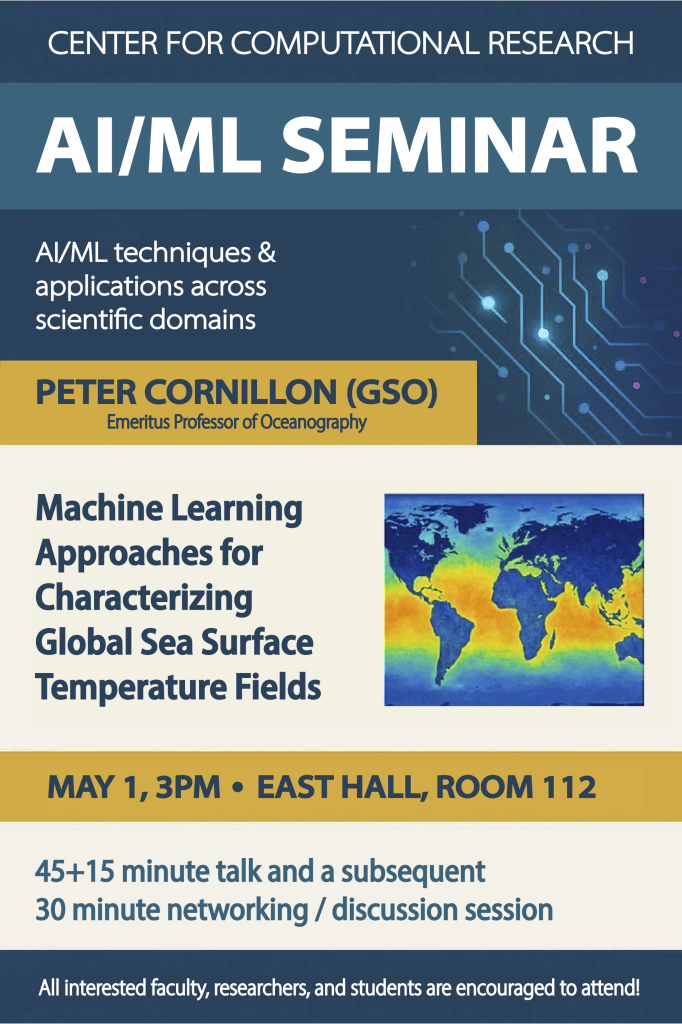Invitation: URI Speed Networking Event for Graduate & Senior Students (AI, Quantum, and Computationally Enhanced Research & Innovation)
Friday April 11, 2025, 9:30-noon
Galanti Lounge, 3rd Floor, URI Library
by
Center for Computational Research, ITS (Joan Peckham & Gaurav Khanna)
URI Innovation Lab (Jim McGwin)
URI Division of Research and Economic Development (Karen Markin)
PURPOSE: To assist graduate and senior students engaged in research and/or innovation at URI to find collaborators from across campus, and to attend to increased need for interdisciplinary, convergence1, use-inspired2, and data enabled research and innovation.
APPROACH: This event will provide a means for students of all disciplines who are active in research and/or innovation to meet and find collaborators from other disciplines. This includes:
- Student researchers or innovators of any discipline searching for partners with analytical, and/or computational expertise, or
- Student researchers or innovators with applied and/or theoretical data, quantum computing, mathematics, statistics or AI/analysis/management expertise wishing to partner with researchers and/or innovators from other disciplines.
The goal is to explore interdisciplinary research collaborations that can strengthen research/innovation projects and better prepare participants for careers that increasingly call for interdisciplinary data and computationally enhanced collaborations. URI students of all disciplines who are actively engaged in research and innovation are invited.
PROCESS: We will use a structured and timed speed dating approach that will give each scholar short segments of time to exchange their expertise, interests, and innovative ideas with other participants. At the end we will provide a pizza and beverages, but all will be welcome to stay and further discuss promising collaborations.
Registration by Friday, April 4, 2025 (So that we can order food): https://docs.google.com/forms/d/e/1FAIpQLSflirdAKzDdSL-iJiU9m38gcQ1W3dTua78YkJTt9aB78AdnlQ/viewform?usp=dialog
Questions? Contact jpeckham@uri.edu (Joan Peckham)
[1] Convergence Research (https://beta.nsf.gov/funding/learn/research-types/learn-about-convergence-research): It is driven by a specific and compelling problem, whether that problem arises from deep scientific questions or pressing societal needs. It shows deep integration across disciplines. Convergence research intentionally brings together intellectually diverse researchers to develop effective ways of communicating across disciplines. As experts from different disciplines pursue a common research challenge, their knowledge, theories, methods, data and research communities increasingly intermingle.
[2] Use-Inspired Research – From NSF solicitation on AI Institutes – NSF 22502 (https://www.nsf.gov/pubs/2022/nsf22502/nsf22502.htm): We use the phrase “use-inspired” rather than “applied” to emphasize that this solicitation seeks to support work that goes beyond merely applying known techniques and adds new knowledge and understanding in both foundational AI and use-inspired domains. Ideally there is a virtuous cycle between foundational and use-inspired research, where foundational results provide a starting point for use-inspired research, and the results from use-inspired research are generalized and made foundational.

